www.hattiechunglab.bio
Menstruation is understudied due to societal taboos + a biological challenge: mice (a key system for research + drug discovery) don’t menstruate.
@cagricevrim.bsky.social made menstruating mice + used them to discover early events in menstruation.
He is on the job market!
@karalmckinley.bsky.social
We built the first transgenic model of menstruation in mice.
We used it to uncover how the endometrium organizes and sheds during menstruation. 🧪
www.biorxiv.org/content/10.1...
🧵

Menstruation is understudied due to societal taboos + a biological challenge: mice (a key system for research + drug discovery) don’t menstruate.
@cagricevrim.bsky.social made menstruating mice + used them to discover early events in menstruation.
He is on the job market!



www.cell.com/cell/fulltex...
@jktgfoundation.bsky.social @itcrtraining.bsky.social @smbmathbiology.bsky.social #mathbio #mathonco @mathonco.bsky.social @deniswirtz.bsky.social
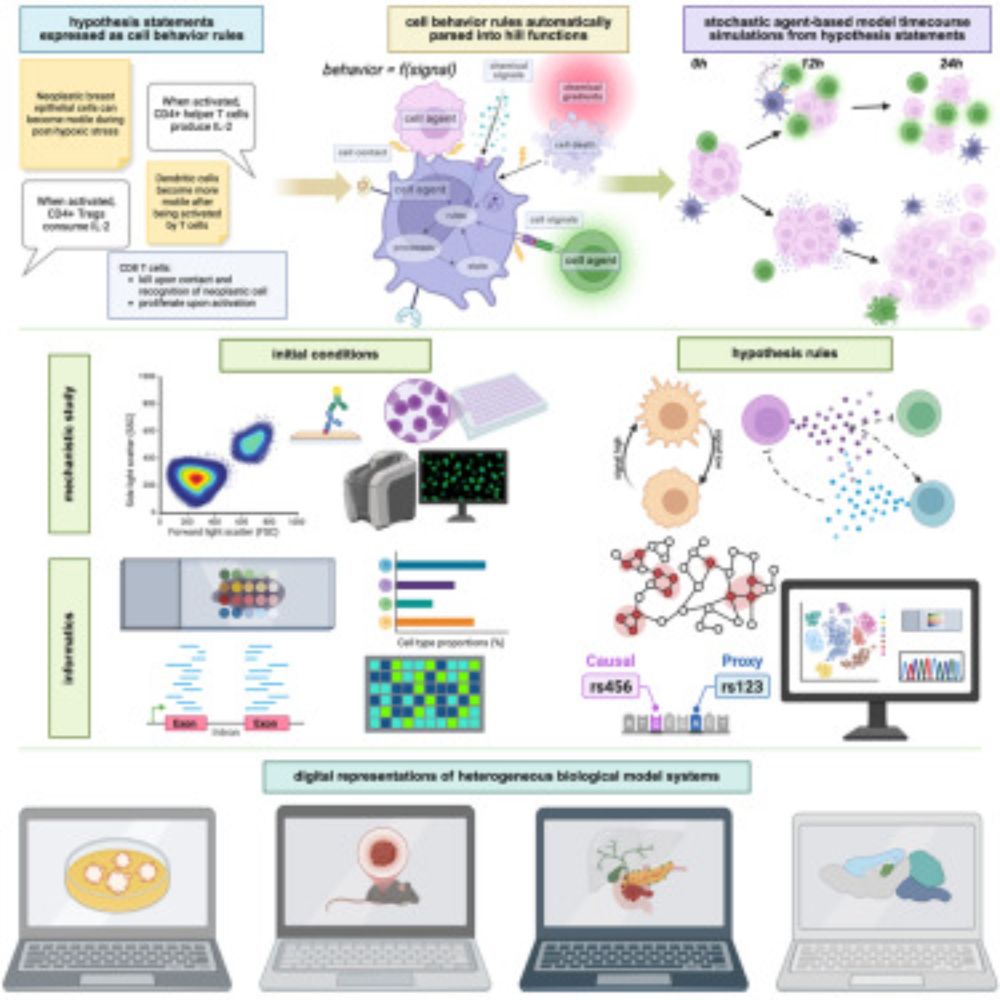
www.cell.com/cell/fulltex...
@jktgfoundation.bsky.social @itcrtraining.bsky.social @smbmathbiology.bsky.social #mathbio #mathonco @mathonco.bsky.social @deniswirtz.bsky.social
@yalecvrc.bsky.social
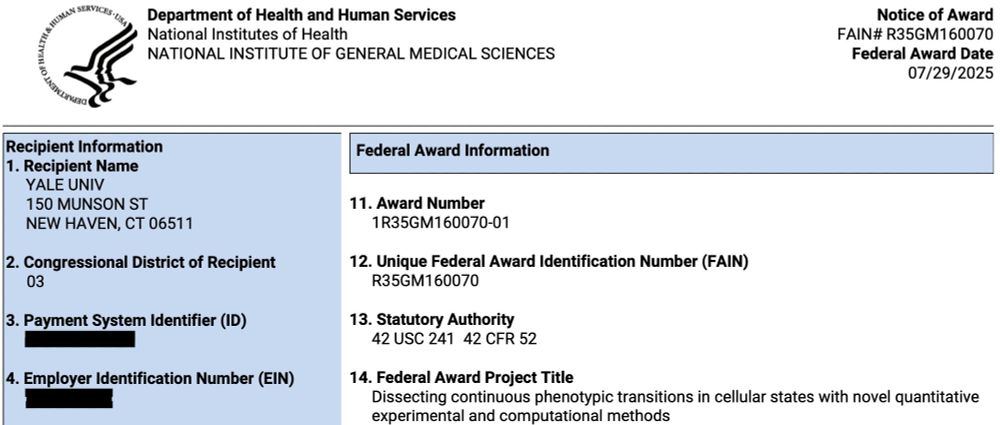
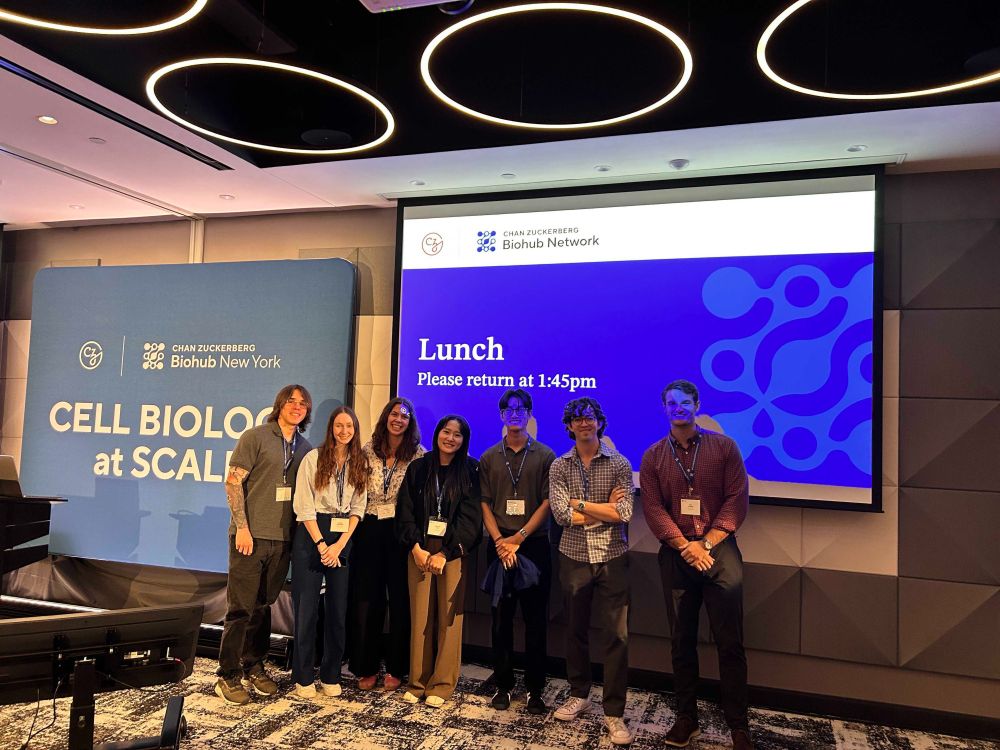
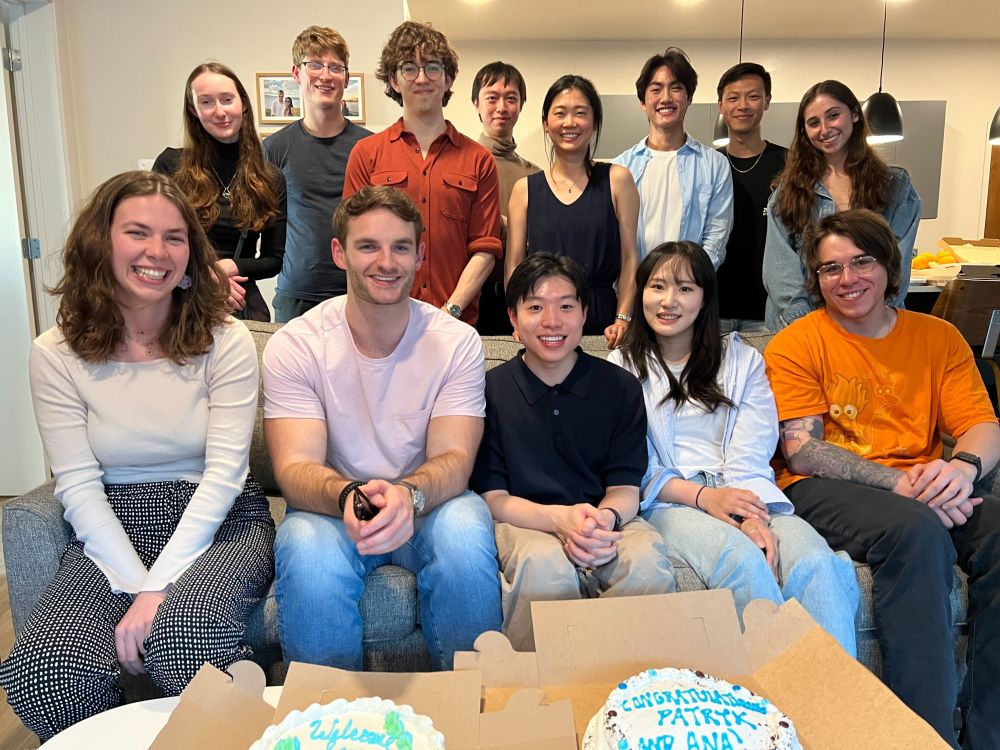
@yalecvrc.bsky.social


www.nature.com/articles/d41...
www.nature.com/articles/s41...


www.nature.com/articles/d41...
www.nature.com/articles/s41...
—New A.I. transformer model
www.thelancet.com/journals/lan...
—Meta-prediction
www.nature.com/articles/s41...


—New A.I. transformer model
www.thelancet.com/journals/lan...
—Meta-prediction
www.nature.com/articles/s41...
🧬 Single cell methylome encodes cell state & clonal identity
🔨 EPI-Clone reads out both (+mutations, +RNA) at scale
🩸 Clonal expansions of HSCs are universal from age 50, not driven by CH mutations
doi.org/10.1038/s415...
🧵
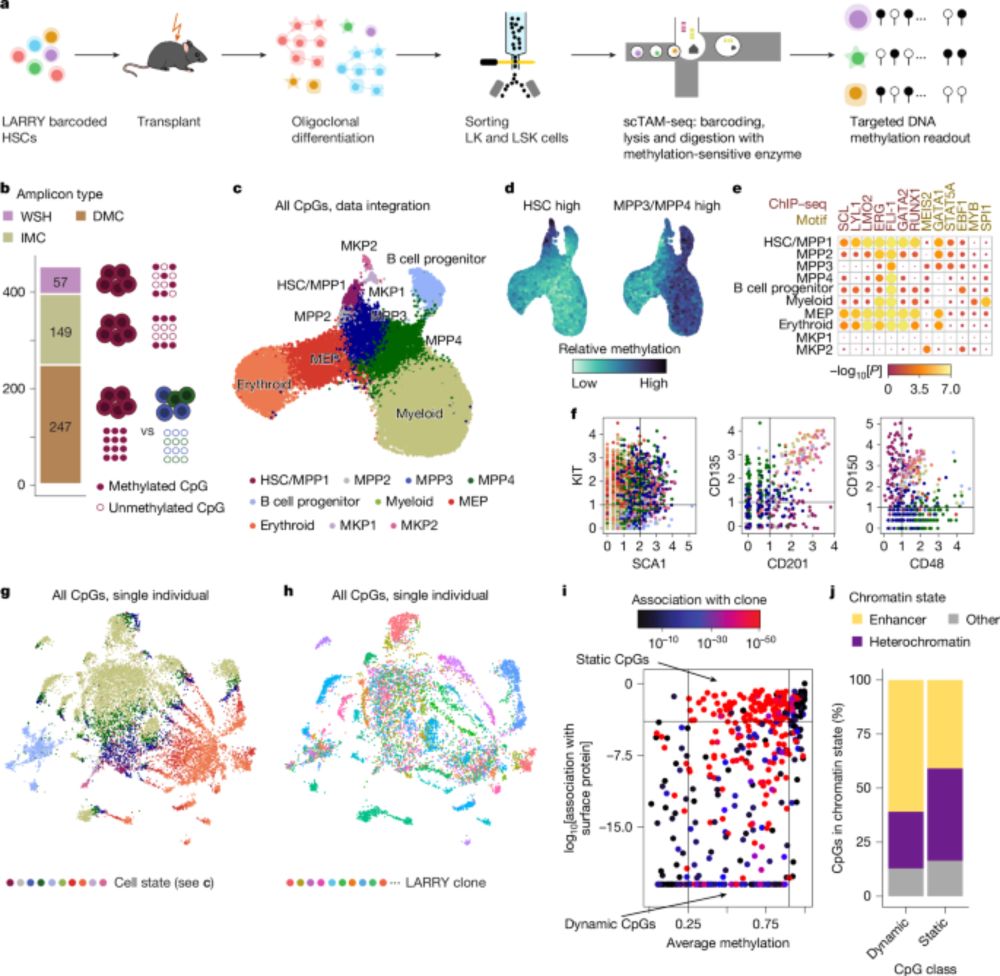
🧬 Single cell methylome encodes cell state & clonal identity
🔨 EPI-Clone reads out both (+mutations, +RNA) at scale
🩸 Clonal expansions of HSCs are universal from age 50, not driven by CH mutations
doi.org/10.1038/s415...
🧵
title of senior full professor's talk: Why do cells eat?
title of senior full professor's talk: Why do cells eat?
There's been so much about engineering T cells (CAR-T) for treatment of cancer and autoimmune diseases. But engineering macrophages (CAR-M) is next up for blocking inflammation.
www.nature.com/articles/s41...

There's been so much about engineering T cells (CAR-T) for treatment of cancer and autoimmune diseases. But engineering macrophages (CAR-M) is next up for blocking inflammation.
www.nature.com/articles/s41...

Introducing C2S‑Scale—a Yale and Google collab: we scaled LLMs (up to 27B!) to analyze & generate single‑cell data 🧬 ➡️ 📝
🔗 Blog: research.google/blog/teachin...
🔗 Preprint: biorxiv.org/content/10.1...

Introducing C2S‑Scale—a Yale and Google collab: we scaled LLMs (up to 27B!) to analyze & generate single‑cell data 🧬 ➡️ 📝
🔗 Blog: research.google/blog/teachin...
🔗 Preprint: biorxiv.org/content/10.1...

1. CPT-1 (Broad Institute)
2. AlphaMissense (Google DeepMind and cols.)
3. ESCOTT (Sorbonne/INSERM France)

1. CPT-1 (Broad Institute)
2. AlphaMissense (Google DeepMind and cols.)
3. ESCOTT (Sorbonne/INSERM France)
The Chung Lab @ Yale seeks a motivated, creative postdoc to examine tissue remodeling in health and disease. We study ovarian aging and cardiovascular disease in human samples and animal models. Passionate about single-cell, spatial genomics, machine learning & therapeutics? Join us!
The Chung Lab @ Yale seeks a motivated, creative postdoc to examine tissue remodeling in health and disease. We study ovarian aging and cardiovascular disease in human samples and animal models. Passionate about single-cell, spatial genomics, machine learning & therapeutics? Join us!
With @karlaneugebauer.bsky.social, @isaac-vock.bsky.social, @mattdsimon.bsky.social
www.cell.com/molecular-ce...

With @karlaneugebauer.bsky.social, @isaac-vock.bsky.social, @mattdsimon.bsky.social
www.cell.com/molecular-ce...
A systemic review of over 400 million people; 1947 to 2021:
A systemic review of over 400 million people; 1947 to 2021:
www.cell.com/cell/fulltex...

www.cell.com/cell/fulltex...
We decided to call them TIGR-Tas systems 🐯
We decided to call them TIGR-Tas systems 🐯
www.biorxiv.org/content/10.1...
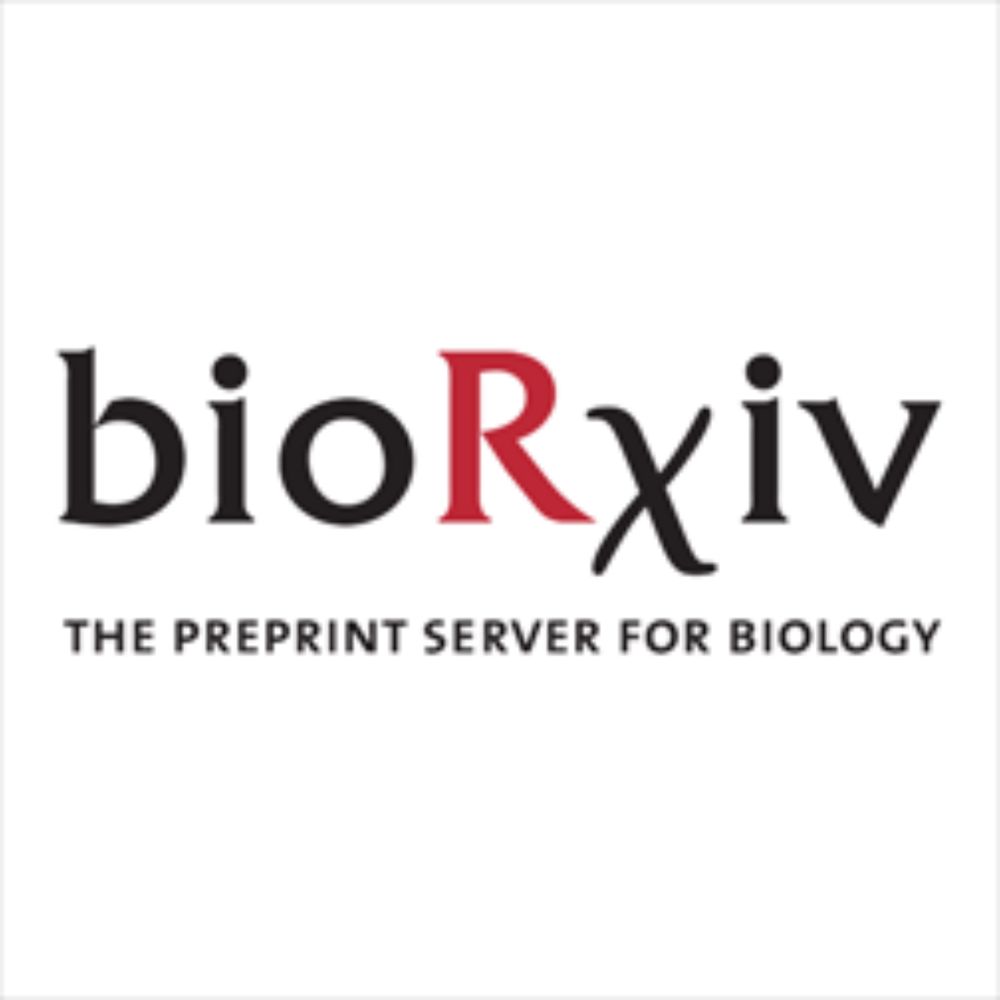
www.biorxiv.org/content/10.1...

